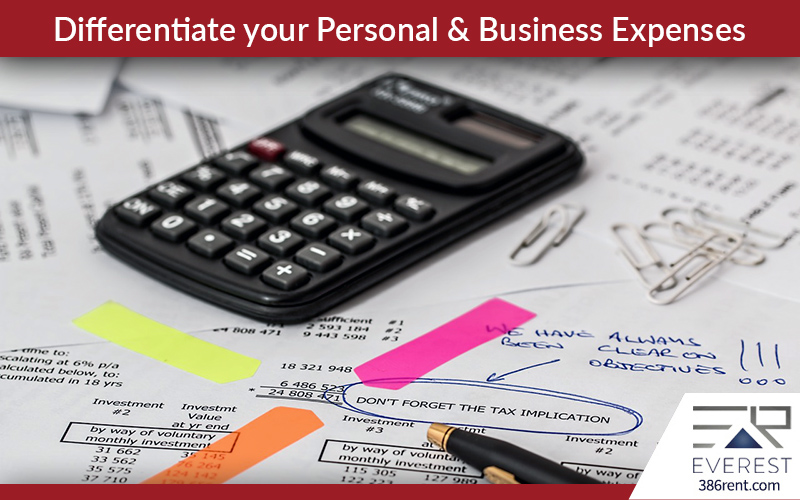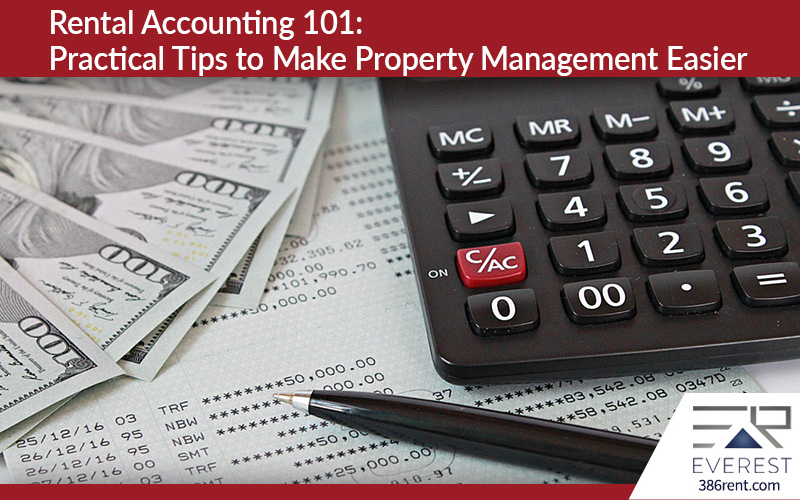Accounting is the financial backbone of any given business, and property management is no different in this regard. Rental property management is all about diligently tracking all your income and expenditures, and ensuring all your funds are well-accounted.
Landlords and property managers rely on comprehensive accounting systems to stay organized and keep well-maintained ledgers. It’s crucial to adhere with the local accounting practices and guidelines while handling rental income and expenses.
If you’ve just stepped into the real estate industry as a landlord, rental accounting may seem overwhelming or overly simplistic. It’s only natural for you to feel overwhelmed by taxation, property maintenance expenses and bookkeeping rituals if you don’t have a finance background. But with a few simple tricks and the right accounting tools, you can make the process simpler and straightforward.
Keep reading to pick up some practical tips that will help make rental property management easier and effortless.
Breaking Down the Types of Rental Transactions
As a landlord or property manager, you will be dealing with various types of transactions that will bring in both, income and expenditures. These costs are tied to your business, property maintenance and your tenants. It’s crucial to understand the nature of each transaction, and how it must be recorded to maintain your books accurately.
Here are some of the common transactions in rental property management:
- Rental Income: Rental payments, late fee penalties, parking fee and security deposits.
- Rental Expenses: These expenses refer to the damages caused by your tenants, such as a broken door knob or clogged bathtub, and are responsible to reimburse you for the damages.
- Property Income: This refers to tenant rent receiving, reserve funds, application fees and other fees.
- Property Expenses: Utility bills, property management expenses, repairs and maintenance, and vendor payments.
- Business income: Managerial payments and fees, late penalties on rent.
- Business expenses: Legal costs, advertising costs, property management software costs, rental cost for office space.
The confusion begins when we notice how many transactions can be recorded in multiple ledgers and in more ways than one. For instance, the rent payment is both a property income and tenant income. So, it has to be recorded in both ledgers.
Differentiate your Personal & Business Expenses

Here’s a common mistakes that landlords make: using their personal accounts for business income and expenses. Regardless of whether you own one property or are renting out a room in your own residence, separating your personal and business accounts is monumental in growing your investment portfolios.
It’s crucial to open a separate savings and checking account for your rental property. This will help you keep track of all your income and expenses, and avoid spending uncontrollably and then losing track of your profits. Once you’re ready to pay yourself, you simply have to transfer the amount from your business account to your personal checking account.
It may seem unnecessary, but it offers the most straightforward solution to stay organized and avoid overspending. If you own multi-family properties, it’s wise to have a separate account for all your properties so you don’t end up handling multiple payments with one account.
An Organized Transaction Recording System
When it comes to create an accounting system, there are no hard and fast rules and it’s wise to embrace a system that you can practice with consistently. Start by creating a schedule for when and how you will be recording the transactions related to your rental income and expenses. You can create separate ledgers for each income and expense, and allocate one day of the week to manage all your transactions and bookkeeping chores.
What’s your Reconciliation Plan?
Accounting is all about reconciliation. It’s crucial to reconcile all your transactions and accounts to make sure every single penny you’ve earned or spent is accounted for. What does a reconciliation plan mean? The word translates to agreement, and in accounting jargon, its means ensuring that all your bookkeeping efforts reconcile with real-life events, which is your bank statement.
Accuracy is of the utmost significance, and if your property portfolio is increasingly complex, you will have to devote ample time to this process. It’s wise to reconcile your ledger with bank statements on a weekly basis as monthly reconciliations get too overwhelming and time consuming.
If you have an accounting software, you can make use of the bank synchronization tool to make the process simpler and effortless. The bank synchronization tool will automatically match and compare all the transactions in the software with your bank statements to identify errors, omissions and missing information.
What’s the purpose of reconciliation? It ensures your compliance with state authorities and taxation payments. In case of an audit, un-reconciled transactions and ledgers can create grave complications for your business.
Embrace the Right Accounting Software
In 2021, managing your own properties as a landlord is incredibly easy because you have a wealth of tools and software at your disposal. Even property managers turn to the efficiency and accuracy of accounting software that save time and offer a multitude of digital tools. These tools help property management businesses reduce their monthly expenses and ensure accounting accuracy.
You may be worried that such a software will come with alarmingly high costs but the costs typically start at around $35 per month. These software are incredibly helpful for property managers, landlords and investors. They empower accounting novices with numerous tools to ensure transparency, efficiency and accurate recording.
You can easily maintain ledgers for multiple properties and tenants, and ensure all your transactions are reconciled with your bank statements. Quick-books are a popular choice amongst accountants, but it’s wise to invest in a software that is designed specifically for rental property management. Such software offer a wide host of tools that are unique to rental businesses. These tools will record all your expenses, be it advertising a vacant apartment or collecting rents online.
Conclusion
It’s wise to consult a rental property expert should you encounter any complexities and challenges. Landlords commonly engage financial advisers and accounting consultants to equip their business with growth-focused strategies. ,/
If you’d like to talk more about property management, or you need help with Everest Property Management, please contact us at Everest Realty.




 As a top producing Realtor and Property Manager; Terry specializes in sales, extensive construction homes, rentals, REO’s, short sales, and all aspects of Real Estate. After graduating the University of Michigan with a master in MBA, Terry continued his endeavor and now has over 15+ years of experience in the Real Estate world. If there is anything that has to do with Real Estate and sales, you can always be sure of Terry to provide important, specialized knowledge.
As a top producing Realtor and Property Manager; Terry specializes in sales, extensive construction homes, rentals, REO’s, short sales, and all aspects of Real Estate. After graduating the University of Michigan with a master in MBA, Terry continued his endeavor and now has over 15+ years of experience in the Real Estate world. If there is anything that has to do with Real Estate and sales, you can always be sure of Terry to provide important, specialized knowledge.




